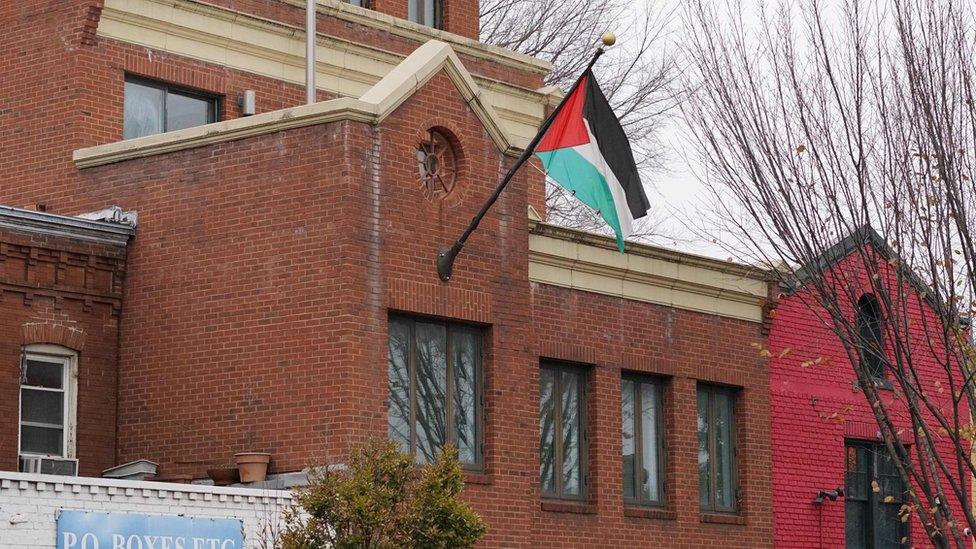Palestinians 'could freeze US ties' over Washington office closure
- Published

The PLO, which represents all Palestinians, opened its office in the US in 1994
The Palestine Liberation Organisation has warned it will freeze its ties with the US if it carries out a threat to close the PLO office in Washington.
In a video on Twitter, .
US officials say the PLO could be breaking a legal condition for it to operate in the US.
The US law says Palestinian authorities must not pressure the International Criminal Court to investigate Israelis.
The PLO, which is seen by the international community as representing all Palestinians, opened an office in DC in 1994.
It is the first time that the State Department has declined to reissue a six-monthly operating licence for it.
A state department official cited "certain statements made by Palestinian leaders" about the International Criminal Court (ICC) as the reason behind the non-renewal.
In September Palestinian President Mahmoud Abbas told the UN that the Palestinians had called on the International Criminal Court (ICC) to investigate and prosecute Israeli officials over "involvement in settlement activities and aggressions against our people".
Allow Twitter content?
This article contains content provided by Twitter. We ask for your permission before anything is loaded, as they may be using cookies and other technologies. You may want to read and before accepting. To view this content choose âaccept and continueâ.
The State Department official said President Trump had 90 days to decide whether to let the PLO keep its office if he deems that the Palestinians have entered into "direct, meaningful negotiations with Israel".
Mr Abbas said he was "deeply surprised" by the US move, which he said had "dangerous consequences for the peace process and the American-Arab relations".
Mr Erekat said he believed the Israeli government had been putting pressure on the Trump administration "at a time when we are trying to co-operate to achieve the ultimate deal".
, the Associated Press news agency reported.
Why aren't the Israelis and Palestinians talking?
The peace process between Israel and the Palestinians has been deadlocked since 2014, when a US attempt to broker a deal failed.
- Published1 July 2016
- Published18 November 2019